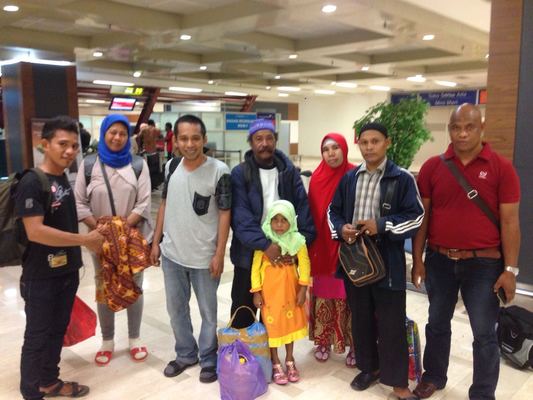
By PHIL JARRATT
LAST weekend was a big one for family, and it ended as it began, with a few tears and a heady mix of happy and sad.
The Noosa Jarratts jumped on the early flight Friday morning, drove south from Sydney and made it to the chapel in time to farewell our Mum and Nanny. Despite the fact that most of her generation pre-deceased her, there was a good roll-up of rellies, friends and people whose lives she had touched in one way or another. Old ladies kept telling me what a wag she was when she took them on Girl Guide camps, or how she kept them amused at choir practice, or crochet class.
Even the Rev Don Marshall, veteran Papua New Guinea missionary and the man who took me to my first cricket test match, not much younger than Mum himself, was there. In her will Mum had asked that Don conduct the funeral service. He’s a bit past that these days, but we shared a few memories about cricket and saving the savages. And later, of course, we toasted her life, over and over again.
Mum was the last of her generation, but casting my eye around the restaurant where we ended the day, I thought she would be proud of her legacy of children, grandchildren and great-grandchildren, people with such different lives and stories, but united in their love of the matriarch.
Our family had gathered to farewell a loved one, but just 48 hours later I found myself in another country and among a group of people who were about to be reunited with their loved ones. Our friends Patrick Burgess and Galuh Wandita, human rights activists who run the Asia Justice and Rights (AJAR) centre in Bali, were hosting an initiation weekend for members of Timor Leste’s “stolen children”, and invited us to join the celebration prior to their return to their homeland for the first time in decades.
Celebration is possibly not the best description of what we walked into in the AJAR meeting joglo last Sunday afternoon, but it was an uplifting experience. Patrick had written a song about their extraordinary lives, and he and Galuh had translated it into Indonesian so that the group could sing along.
They put me in the car and drove away
Rivers of tears ran down your face
Thirty years pass slowly by
But today
I’m going home
I’m going home
Patrick strummed his guitar while the group of about 20 sang along loudly and lustily. There was joy in their faces but for some the emotion of the moment was too much. One young man fled the room sobbing. Galuh later explained that he had just learned that his real mother had died before he could make the reunion trip.
Each of these Timorese people had a story to tell, some tragic, some not, but all of them bound together by the stark reality that they were forcibly removed from their homes and their families while still children and resettled in Indonesia, often spending years in orphanages. The stealing of Timorese children started in the 1970s and continued through the 1990s, so that today the earliest of them are now in middle age with families of their own. Born Catholic, they have been Muslim for most of their lives. They know only the Indonesian version of Timorese history, which is to say they no virtually nothing of their home.
It’s easy to be critical of Indonesia over this obvious injustice, but we have to look no further than our own backyard for parallels in the Stolen Generation of Indigenous children.
Now, thanks to AJAR and other human rights organisations spending years seeking out the stolen children in far corners of Java and Sulawesi, and thanks to a little bit of belated mercy from Joko Widodo’s government, small groups of them are going home, albeit temporarily. A handsome bald man in his forties named Mubarrak (“like Barack Obama”, he joked) told me how he led a good life now in Indonesia, but he had always felt a deep sadness because he had been old enough to remember the first life he had, and yet he knew nothing of those people and places now.
Mubarrak didn’t seem to harbour great resentments, he just beamed with joy that at last he was going home. Others in the group had been less fortunate. Galuh showed us the “river of life” that each of them had drawn over the weekend. Some showed snags and sharp turns where the water was coloured the deep red of blood. Others ran smoothly and freely after initial twists and turns.
As I write this they are on the plane, on their way home. They have to return to Indonesia, and most of them actually want to. For better or worse, it has become their home now. But I hope that this real homecoming has not been left too late, and that it brings them the closure they deserve.







